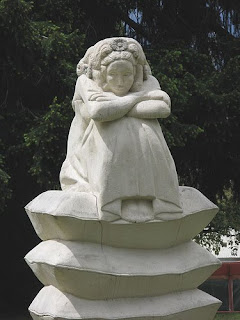Tormented by Bullies

"Sticks and stones may break my bones, but words will never hurt me."
Kids being harassed to the point of attempting - or succeeding - suicide is not only tragic; it is happening everywhere. From big cities to tiny towns, there are bullies. In third grade, our class bully was a larger-than-average guy with a buzz cut and a scowl. I avoided him purely because of his reputation. When I finally was side-by-side in line with him, I mustered the courage to speak and found out he was actually civil. Later, I learned he was abused at home and acted out at school.
A few years later, and no longer afraid of the quintessential bully, I learned that pubescent friends, (particularly girls) can be cruel. Tweens tend to be insecure, hormonal, and territorial - which can be a deadly combination. My experiences seemed to correlate with scholarly observers who determined that somewhat uncivilized behavior may occur in otherwise domestic social groups sharing similar demographics. In other words, adolescent girls can be bitchy.
As a working adult, I have held jobs that gave me contact with teen socialization. I've observed, as technology improved, social interactions changed, transforming the benign teen angst of yesteryear to today's vicious, high-tech, vitriolic hatred. A rumor that was spread by word-of-mouth 30 years ago, can now zip around the world in mere minutes. Hearsay could be scoffed as twisted words, but now those words are in print or photos on the web. Kids could only harass peers for a limited spectrum of taunts. We didn't have access to WebMD, pornography, and Wikipedia to provide fodder for contrived accusations and ailments.
Even low-tech, person-to-person bullying seems more hateful and potentially more damaging than ever because of the exposure kids have to television and movies. Some may see people acting out on reality television shows and assume bad behavior is the norm.
A few years ago, a parent told me about her daughter being harassed by a girl at high school. The rift was trivial, but the aggressor was on the warpath. She would stalk the victim by driving by her home or the recreation center during extracurricular activities. At one point the victim feared the angry teen would use the car as a weapon. When the defensive mother talked to the other mom, she was met with an attitude similar to the teen's - like mother, like daughter.
Just this week, one of the adult students in my class talked about the trouble her 13-year-old daughter is facing. Her daughter is quiet, shy, soft spoken, and by her photo, very attractive. For three years, another girl has tormented this woman's daughter. The two played soccer together and the aggressor would deliberately trip the weaker girl. The mother talked with the coach and ultimately pulled her daughter from the team. She then realized it wasn't fair to punish her daughter for the actions of the other player.
Now, the two girls ride the same bus to school. The aggressor threatens and teases, making the victim cry. The mother has tried to encourage her daughter to stand up to the bully, but the daughter won't. At the same time, she doesn't want her daughter to lose her sweet nature, anyway.
Because the daughter usually meets a close friend to ride the bus together, the bully now accuses the girl of being a lesbian. The daughter has actually talked about committing suicide because she is so tormented and ashamed. The mother has been to the teacher, the school administrators and the school board to no avail.
As I and a couple of others listened in shock, I spoke up. I noted that even if the girl was a lesbian, it shouldn't matter. (Maybe she should threaten to kiss the bully?! I have an old friend that belonged to Dykes on Bikes - I'd love to sic her on this bully!). The girl has nothing to be ashamed of, though at that age, sexual identity is such a personal and precarious topic. Everyone wants to "fit in" and doesn't want to appear different.
Regardless of what the taunts are, and regardless of the victim's temperament, the most important thing is for the individual to realize the bully is the one with the problem. Someone should not have to change their personality and become aggressive to ward off victimization. I encouraged my student to let her daughter know that self-confidence is her biggest mode of defense. If she knows that the bully is wrong, at least, perhaps, she will stop contemplating suicide.
I just gave my students an assignment that included contemplating Rudyard Kipling's "If" along with a few quotes. He was spot on when he said, "Words are, of course, the most powerful drug used by mankind." And, like drugs, words can heal or they can kill.
Photo by Eric Brechemier

I take my kid to Kung Fu. It helps build the confidence you speak of. However, if that doesn't work, he can actually use the Kung Fu.
ReplyDelete